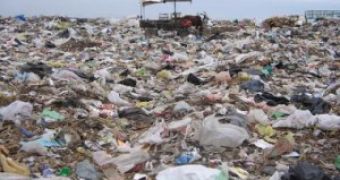Mexico city has decided it is time to close one of the world's largest open dumps located on its territory. The main reason is not the appalling smell, or the health risks residents are exposed to, but the necessity to turn waste into a viable, cost-effective source of energy.
All in all, it seems that authorities will make sure that Mexico city will end this year in a clean, eco-friendly manner, Yale environment 360 informs.
By the end of 2011, almost 700 large trucks carrying waste to the overcrowded landfill Bordo Poniente will no longer be part of the landscape.
So far, Bordo Poniente was the new home of 76 million tons of trash, gathered since its opening, after the tremendous earthquake that shook Mexico City in 1985.
In time, the place has earned the reputation of one of the largest open dumps on the Globe, since it started receiving approximately 12,700 tons of trash on a daily basis. Closing the dump will prevent 2 million tons of carbon dioxide from reaching the atmosphere every year.
Many other cities think about relocating their landfills for several reasons, but Mexico city is preparing to accomplish a much more ambitious goal.
Even though the dump will close, a composting plant and a recycling separation center will stay open, to guarantee that the streets will remain clean. Boosting recycling operations is part of the plan and so is the production of cheap energy derived from waste.
Local authorities have announced that Cemex SAB, an important cement company said it would buy 3,000 tons of trash on a daily basis to transform it into power.
If Cemex SAB manages to obtain a decent profit through this process, its path could be followed by other similar enterprises.
Meanwhile, Mexico City officials are looking for suitable candidates to store the remaining amount of trash until they open a new recycling program set for next year.
It seems that, just in time for Christmas, big cities are keen on reducing the increased amount of waste triggered by winter holidays while implementing beneficial changes.
From this point of view, the example set by Seattle is worth mentioning. The city officials have recently managed to adopt a plastic bag ban and impose a 5% fee on paper, to reduce the amount of trash.

 14 DAY TRIAL //
14 DAY TRIAL //